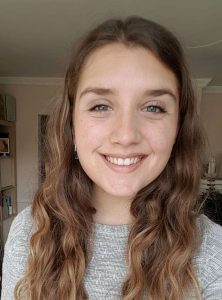
Over the summer, I had the privilege of assisting Dr Shahabuddin in his research on ‘Postcolonial Statehood, International Law and the Making of the Rohingya Migrant Crisis’. Having completed two years of my international law undergrad and having a specific interest in human rights and the international law surrounding refugees, I was extremely excited to begin work on my project. The fact that this research would later be used to help Dr Shahabuddin write his book on the same topic really made me feel like I was playing a small role in a much bigger project (and hey, maybe I’ll even have my name acknowledged in an academic book!).
My five weeks were divided into two phases. During phase one I was tasked with creating a comprehensive bibliography on the international law of citizenship, nationality, and statelessness. A task that looked much easier on the surface but which turned out to be more difficult than I had anticipated. Let me tell you how many United Nations or other regional organisation resolutions there are on this topic – many. And how do I know which secondary or primary sources to add without reading them in full? When is a bibliography ‘comprehensive’? The task not only helped me develop my problem solving and organisation skills, but taught me an important lesson every true researcher must know – always start by creating a bibliography.
For the second phase, and remaining three weeks of my scholarship, Dr Shahabuddin asked me to answer the question “What is the position of international law on citizenship?”. At first intimidated by my upcoming task, at least I knew where to start. I had been given a list of core sources (from the bibliography I had previously produced) I was to read. After a mere few days I realised that the way I had done research prior was not effective enough to manage the vast number of sources I needed to go through. So, what these weeks really taught me was research efficiency, how to extract the information I need in the most efficient way from any source I read, and how to then apply it to the output I was producing.
What I had mostly looked forward to before the project began, was the opportunity it gave me to deepen my understanding of a specific area of international law, an area which I had prior interest in, yet had never properly studied. And boy is it interesting. Did you know that the United Nations High Commissioner for Refugees estimates there are at least ten million people that are ‘stateless’, i.e. do not hold a nationality? And were you even aware that is possible, to not belong to any particular state? I had been clueless about these issues for twenty-two years of my life and I am very thankful that I had the opportunity to learn about them.
Concluding, this project has been the most challenging and rewarding academic experience I have had the chance to take part in. My understanding of the nature of research and my approach to it has changed diametrically and I have developed so many skills, from critical engagement with international law, to more generic skills of reflective reading and writing. These will not only help me in my final year of studies, but also in the postgraduate study I plan to undertake. I would encourage any student to apply for such an experience and I am very grateful for the opportunity to have taken part in it.
Kamila Lauer Czerwinski, LLB International Law and Globalisation
